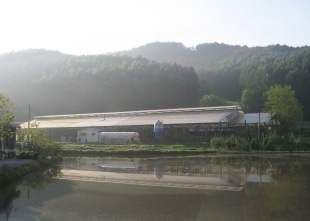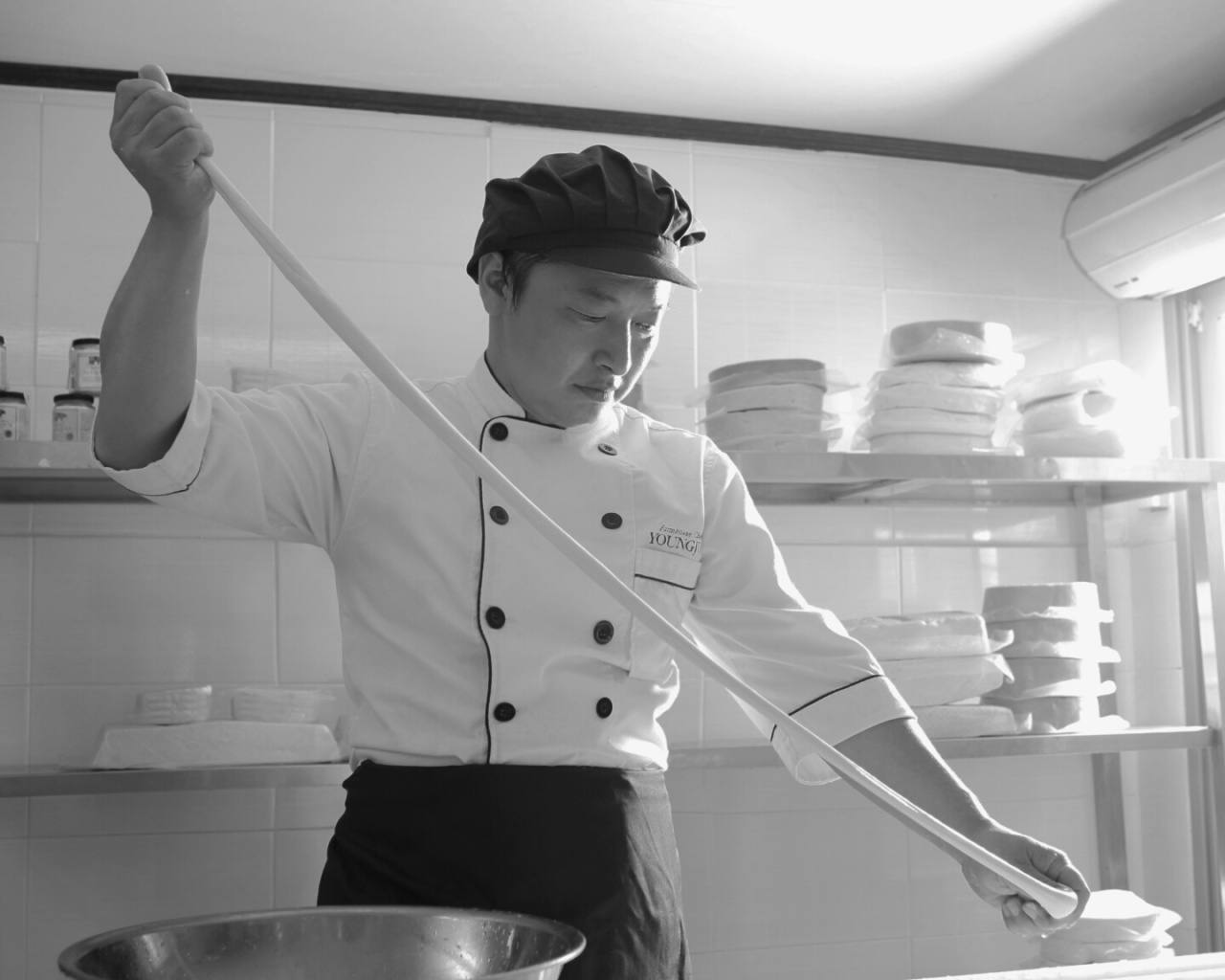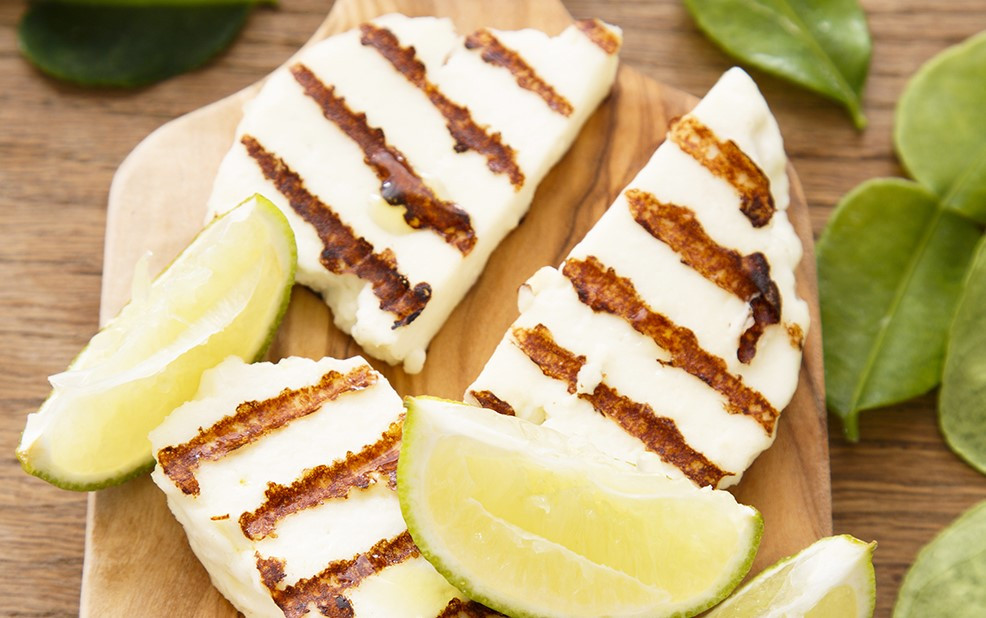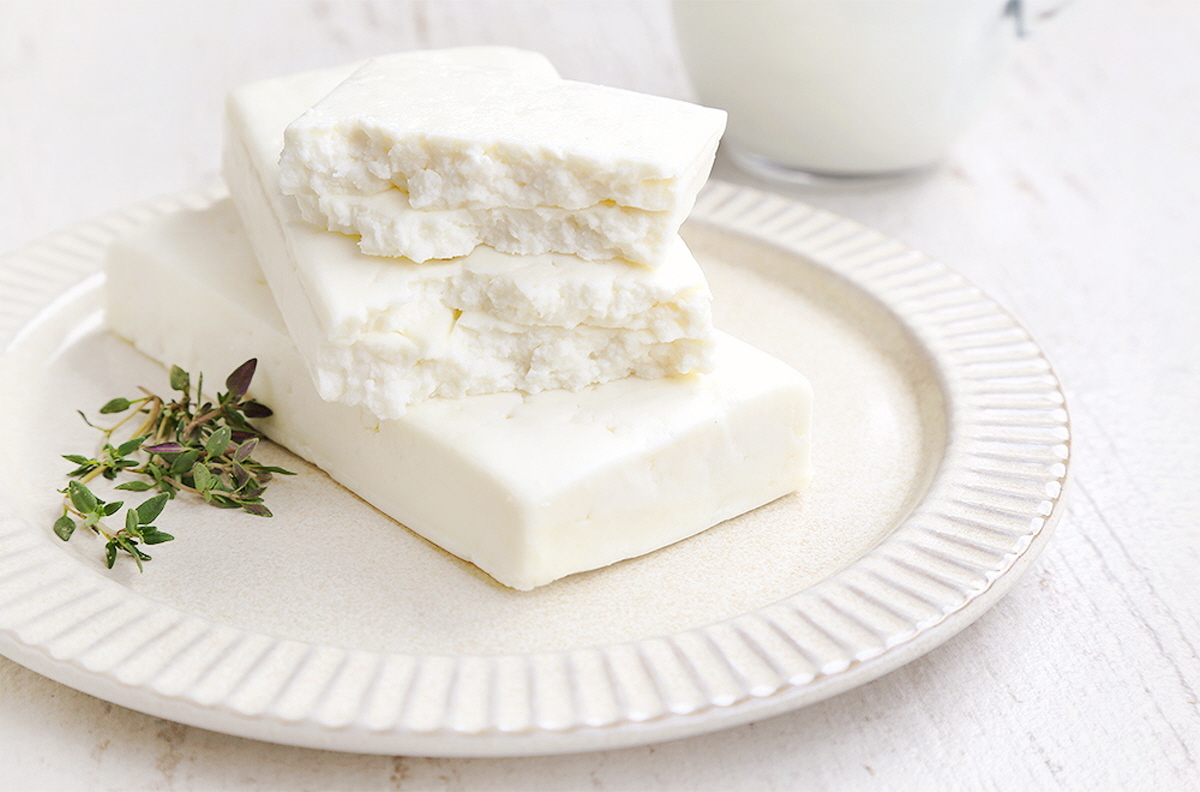Fresh cheese made with fresh milk at Youngjun Farm
What began as cheese for the couple’s children has grown into artisanal cheese business
By Jean OhPublished : Feb. 6, 2021 - 16:02

Dairy -- the fresh, unadulterated scent of milk -- unfurls on the tongue when one bites into a warm, crisply grilled slice of Youngjun Farm’s halloumi cheese.
It comes as no surprise when Kim Joo-hye, 53, says with great emphasis, “Using fresh milk is the most important part of our cheesemaking process.”
Over two decades ago, when Kim and her husband Na Won-kyung moved to Miwon-myeon in North Chungcheong Province from Seoul, she had no idea the cheese she and her husband started making for their children would end up being sold at department stores and markets in Seoul and Gyeonggi Province and on online platforms such as Market Kurly.
“At first we bought cheese for our kids,” Kim recalled. “Then we thought, ‘Let’s make it with our milk.’”
Armed with some cheesemaking books, Kim and Na started to make cheese.
“We made tons of cheese,” said Youngjun Farm CEO Na Won-kyung, 53.
“And we ended up throwing away a lot of cheese,” Kim said, recalling the trials and tribulations of making cheese that appealed to their children.
The family wanted cheese that was not too salty that their children could enjoy. There were no set rules. Just their own; and that was how it all began.
It comes as no surprise when Kim Joo-hye, 53, says with great emphasis, “Using fresh milk is the most important part of our cheesemaking process.”
Over two decades ago, when Kim and her husband Na Won-kyung moved to Miwon-myeon in North Chungcheong Province from Seoul, she had no idea the cheese she and her husband started making for their children would end up being sold at department stores and markets in Seoul and Gyeonggi Province and on online platforms such as Market Kurly.
“At first we bought cheese for our kids,” Kim recalled. “Then we thought, ‘Let’s make it with our milk.’”
Armed with some cheesemaking books, Kim and Na started to make cheese.
“We made tons of cheese,” said Youngjun Farm CEO Na Won-kyung, 53.
“And we ended up throwing away a lot of cheese,” Kim said, recalling the trials and tribulations of making cheese that appealed to their children.
The family wanted cheese that was not too salty that their children could enjoy. There were no set rules. Just their own; and that was how it all began.

To be more exact, Na recollects, it all began with a farm, which he named after his eldest son, Young-jun, and one to two cows in 1996.
Na remembered when he struck out on his own after learning the ropes as a ranch manager for two and a half years.
“We were producing so little milk,” Na said as he recounted how worried he was in the beginning about running a farm.
After settling in and using the milk to make cheese for his family, he started giving the cheese to acquaintances and those acquaintances started giving the cheese to their friends.
In the meantime, he also expanded and moved his farm from Daesin-ri to Naesan-ri in North Chungcheong Province in 2002.
Then about eight to nine years later, he started to sell his cheese.
Now one can find Youngjun Farm’s cheese in around 10 department stores and markets and on online platforms like Market Kurly and SSG.com.
While Youngjun Farm has clearly grown over the years from a small farm into a full-blown cheesemaking operation -- so huge in fact that Na says he now needs to source milk from local farms to meet demand -- it seems to have retained its artisanal, homemade charm and its prowess in the realm of locally-crafted, fresh, as opposed to aged, cheese.
Na remembered when he struck out on his own after learning the ropes as a ranch manager for two and a half years.
“We were producing so little milk,” Na said as he recounted how worried he was in the beginning about running a farm.
After settling in and using the milk to make cheese for his family, he started giving the cheese to acquaintances and those acquaintances started giving the cheese to their friends.
In the meantime, he also expanded and moved his farm from Daesin-ri to Naesan-ri in North Chungcheong Province in 2002.
Then about eight to nine years later, he started to sell his cheese.
Now one can find Youngjun Farm’s cheese in around 10 department stores and markets and on online platforms like Market Kurly and SSG.com.
While Youngjun Farm has clearly grown over the years from a small farm into a full-blown cheesemaking operation -- so huge in fact that Na says he now needs to source milk from local farms to meet demand -- it seems to have retained its artisanal, homemade charm and its prowess in the realm of locally-crafted, fresh, as opposed to aged, cheese.

Na revealed the secret to his incredibly elastic, satiny string cheese.
“We do not use a machine to make the string cheese,” he said. “We make it by hand.”
In addition to hand-pulled string cheese, there is Youngjun Farm’s halloumi.
“We do not use a machine to make the string cheese,” he said. “We make it by hand.”
In addition to hand-pulled string cheese, there is Youngjun Farm’s halloumi.

While traditional halloumi is known for its salinity, Na’s version is not.
Instead, his take on this Mediterranean cheese, which is often grilled or fried, is incredibly mild and sports a rich, dairy flavor.
“Our approach is to not try to emulate other cheeses,” Kim said. From the very beginning the goal was to create cheese based on their own aesthetic, or to be more exact, the preferences of their children, he explained.
“We would make the cheese until we like it,” Kim said, recalling waking up her children at night to taste their cheese.
“The amount of cheese we tossed because it didn’t turn out right is as huge as a pile of snow in the winter,” Na said.
Instead, his take on this Mediterranean cheese, which is often grilled or fried, is incredibly mild and sports a rich, dairy flavor.
“Our approach is to not try to emulate other cheeses,” Kim said. From the very beginning the goal was to create cheese based on their own aesthetic, or to be more exact, the preferences of their children, he explained.
“We would make the cheese until we like it,” Kim said, recalling waking up her children at night to taste their cheese.
“The amount of cheese we tossed because it didn’t turn out right is as huge as a pile of snow in the winter,” Na said.

What emerged was cheese that tastes like its most basic ingredient. Cheese that tastes like milk -- like very fresh, very rich milk.
Youngjun Farm’s mascarpone, in particular, tastes very much like fresh cream -- its primary ingredient -- so very luscious, thick and incredibly pure, delicious heaped over strawberries or slices of buttery French toast.
Kim attributes this to the freshness of the milk used to make their cheese, while Na also believes the cheery atmosphere of his cheesemaking team plays a crucial role in determining the flavor and quality of their cheese.
Now a decade deep into the cheesemaking business, both Na and Kim have no intention of slowing down and already dreaming up new cheeses.
By Jean Oh (oh_jean@heraldcorp.com)
Youngjun Farm’s mascarpone, in particular, tastes very much like fresh cream -- its primary ingredient -- so very luscious, thick and incredibly pure, delicious heaped over strawberries or slices of buttery French toast.
Kim attributes this to the freshness of the milk used to make their cheese, while Na also believes the cheery atmosphere of his cheesemaking team plays a crucial role in determining the flavor and quality of their cheese.
Now a decade deep into the cheesemaking business, both Na and Kim have no intention of slowing down and already dreaming up new cheeses.
Youngjun Farm
26, Naesan 1-gil, Miwon-myeon, Sangdang-gu, Cheongju City, North Chungcheong Province
For more information contact (010) 3185-2547
Cheese costs approximately 7,500 won to 15,000 won for 100 grams, special Seollal sets are also currently sold at department store outlets and online.
26, Naesan 1-gil, Miwon-myeon, Sangdang-gu, Cheongju City, North Chungcheong Province
For more information contact (010) 3185-2547
Cheese costs approximately 7,500 won to 15,000 won for 100 grams, special Seollal sets are also currently sold at department store outlets and online.
By Jean Oh (oh_jean@heraldcorp.com)


















![[Today’s K-pop] Treasure to publish magazine for debut anniversary](http://res.heraldm.com/phpwas/restmb_idxmake.php?idx=642&simg=/content/image/2024/07/26/20240726050551_0.jpg&u=)